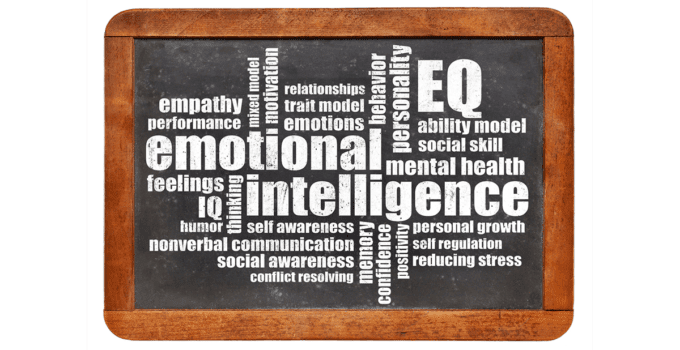The Center for Creative Leadership in the U.S. found that the primary causes of executive derailment involve shortfalls in emotional intelligence. More specifically, the causes are difficulty handling change, inability to work well in a team, and poor interpersonal relations. Emotional intelligence is clearly an important factor in workplace success. With that said, it is valuable to be familiar with its clear definition, as well as some tips for utilizing it correctly.
Emotional intelligence has 4 basic components: self-awareness, self-management, social awareness, and relationship management. Self-awareness is the ability to perceive and stay aware of your emotions. Self-management is your ability to use your emotions to positively affect your behavior. Social awareness is your ability to pick up on other’s emotions. Relationship management is the ability to manage interactions successfully with the awareness of your own and other’s emotions.
The good news is there are ways to fine-tune your emotional intelligence. Try implementing the tips below.
- Build your self-awareness by pondering your feelings. Ask yourself, “What is my current mood? How will it affect my decisions and success today?”
- Work on understanding how perceptions differ while hearing someone’s that is different from your own.
- Perfect the pause—think before you speak. This will hone your self-management as well as relationship management skills.
- Remember there’s no final lesson in emotional intelligence—it constantly needs improvement. Whenever you start to get lazy because you think you’ve mastered an aspect, that’s when you will make the most mistakes.
Emotional intelligence is a valuable skill to have. And the best part is, everyone has it; they just need to polish it.




